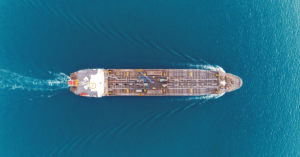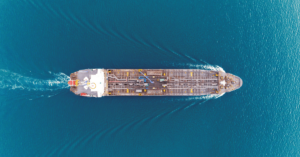
Chinese Carrier Sues Amazon For $96.4 Million Over Breach Of Contract
February 6, 2025
Cargo Ship Carrying Artillery Shells Stuck In Vigo After Containers Break Loose
February 6, 2025

The Russian Ministry of Transport has started a large-scale inspection program for companies operating river-sea tanker fleets after the sinking of two tankers in the Kerch Strait in December 2024.
The inspections were ordered by Russian President Vladimir Putin, who directed the Ministry of Transport to assess whether tanker companies and individual owners are following regulations.
The program will include the inspection of around 500 maritime and inland waterway transport firms that operate tanker vessels. The inspection is set to be completed by April 2025, before the start of the 2025 navigation season.
The Ministry of Transport also confirmed that it would conduct a full audit of the regulatory framework governing the transportation of oil and petroleum products by sea and inland waterways.
The inspection follows the tragic loss of two Russian oil tankers in the Kerch Strait on December 15, 2024. The tankers, the Volgoneft-212 and Volgoneft-239, were carrying a total of about 9,200 tonnes of fuel oil when they sank.
Official reports state that about 2,400 tonnes of fuel oil were spilt, though unconfirmed reports suggest it could have been as much as 4,300 tonnes. The spill stretched nearly 10 miles, reaching parts of the Sea of Azov and the Black Sea, affecting coastlines and marine life.
Video Credits: 10 News First/YouTube
Reports indicate that over 700 seabirds and 61 dolphins were contaminated by the oil.
Russian media quoted Viktor Basargin, the head of the Federal Service for Supervision of Transportation (Rostransnadzor), who confirmed that the inspections are already underway. He added that the inspection process would be completed by April, well before the 2025 navigation season begins.
The Volgoneft class vessels involved in the incident are Soviet-era ships built in the 1960s and 1970s. These vessels were originally designed for operations on the Volga and Black Seas.
Soviet naval architects used a mix of standard plate and higher-strength steel for construction. However, the vessels have a history of serious cracking issues, which led to an overhaul of the fleet in the 2010s.
Despite these updates, the vessels are now over 50 years old and showing signs of wear and tear. The recent wrecks in the Kerch Strait have brought attention to the age and condition of these ships.
While there have been several incidents with the vessels in the past, the December 2024 disaster is considered one of the worst environmental incidents in recent years.
The Russian Ministry of Transport is also reviewing the regulatory framework governing the transportation of oil and petroleum products. The ministry aims to improve safety standards and prevent similar incidents from occurring in the future.
Ukraine’s Ministry of Environmental Protection has criticised the vessels involved in the spill, calling them “unfit for their purpose.” The issue was discussed at a recent IMO sub-committee focused on pollution prevention and response, where allegations of negligence were also raised.
Russian officials have stated that the cleanup of the Volgoneft-239 oil spill is largely complete. However, the long-term environmental effects are still being monitored.
Reference: Meduza
Source: Maritime Shipping News


